A Smarter Future: Mayor Ivica Puljak Discusses Green City Action Plan Split
March 5, 2022 - Split Mayor Ivica Puljak attended an online meeting with the developers of the Green City Action Plan Split - European Bank for Reconstruction and Development (EBRD) and local and international consultants involved in drafting the Green City Action Plan Split (GCAP).
On that occasion, he pointed out the advantages of cooperation with the EBRD in developing such and similar "green" projects for the city of Split. Furthermore, he stressed the importance of drafting and implementing the plan in the context of improving the quality of life, environment, and climate change.
The City of Split joined the Green Cities program in October 2020, and the development of the GCAP officially began in April 2021. More than 40 European cities have been supported through the EBRD's Green Cities program since 2016, and a vital part of the program is the development of the Green City Action Plan (GCAP).
GCAP is tailored to the city to improve the quality of the environment and resilience to climate change and the well-being of citizens. GCAP achieves this by identifying, prioritizing, and linking the city’s environmental challenges to sustainable infrastructure investments and policy measures. To this end, the development of the GCAP is an inclusive process, while the Technical Expert Group (TEG) is key to its success.
The online discussion also served as an introductory meeting of the Technical Expert Group representatives with the GCAP developers. TEG members are appointed by representatives of various institutions, companies, and associations in the city of Split to give their expert contribution in the fields of environmental protection, urban infrastructure, economy, climate resilience, smart city, and other related industries relevant to the development and drafting a quality document. Through their inputs, members of the Technical Expert Group participate in crucial planning processes, including workshops and focus groups, and setting priorities and strategic objectives.
The GCAP will build on existing city plans and strategies to identify practical measures to improve the city that can be implemented over the next few years. In this context, GCAP will be harmonized with the "Strategy for the Development of the City of Split until 2030". Furthermore, the wide range of GCAP will help the City develop activities that provide multiple benefits in different urban sectors and attract financial investors who invest in green and sustainable investment projects.
GCAP is being developed with the support of donors TaiwanBusiness - EBRD Technical Assistance Fund.
Source: Grad Split
To read more about lifestyle in Croatia, follow TCN's dedicated page.
Plenković: Construction of Access Road to Kozjak Tunnel to Start Soon
ZAGREB, 10 Jan 2022 - During his visit to Split on Monday, Prime Minister Andrej Plenković said that construction would soon begin of the access road to the €133 million Kozjak tunnel and that project should relieve traffic jams at the entrance to this biggest Croatian Adriatic city.
"We spoke about the Vučevica-Kozjak-Kaštela project which is important for the construction of a tunnel valued at HRK 1 billion (€133 million), and soon construction works will begin for the road from Vučevica," the premier said after meeting with Split-Dalmatia County Prefect Blaženko Boban.
According to Plenković, Transport and Infrastructure Minister Oleg Butković and the Hrvatske Ceste (HC) road management company's director, Josip Škorić, met with Boban today to discuss the road infrastructure projects and access routes to Split aimed at lessening traffic jams during the tourist season.
Plenković added that other infrastructure projects in the county were also discussed, including a bypass road around Omiš, an overpass at Širine in Solin, and the Mravinci-Stobreč road.
PM said that investments in Adriatic ports had also been discussed, referring to them as the renaissance of the Croatian coast with investments that had not occurred in that county for decades.
"The development of traffic and port infrastructure is boosting the economy and tourism," he said.
Plenković expects efforts to be made in Split-Dalmatia County "to step up the rate of immunization and adherence to epidemiological measures in an effort to put the spread of COVID under control in this fifth wave of the pandemic."
"We have also mulled over preparations for the following tourism season," he said.
Plenković recalled that during the COVID pandemic the government had so far set aside HRK 1.5 billion (€200 million) and saved 75,000 jobs in the county, with aid for 15,000 enterprises.
"The government's policy obviously contributed to last year's tourism season and GDP growth which will certainly be in the double-digits this year," he said.
He added that the government had concluded agreements for more than HRK 7 billion from European funds for projects in Split-Dalmatia County.
Prefect Boban underscored that preparations for large infrastructure projects in the county have been completed and in particular, he referred to a new road from Solin to Omiš which is one of the most congested thoroughfares in Croatia during the tourist season.
Split Mayor and Plenković discuss projects worth €400 million
PM Plenković also held talks with the mayor of Split, Ivica Puljak, on infrastructure projects, worth three billion kuna, such as the reconstruction of the Poljud stadium, and reconstruction and construction of road infrastructure.
Puljak said that he had requested that the second biggest city in Croatia should be awarded the equal status which the capital city of Zagreb has. This will be beneficial for better management of the city, Puljak told the press.
For more, check out our dedicated politics section.
Ivica Puljak Elected Leader of Centre Party
ZAGREB, 6 Nov 2021 - The mayor of Split, Ivica Puljak, was elected president of the parliamentary Centre party by a vast majority of delegates at an online election convention on Saturday, saying that the party was ready to take responsibility for changing Croatia into a modern, open and tolerant society.
"The confidence that was placed in us by the people of the second-largest city in Croatia shows that they want true change. Everything we are doing in Split is proof that such change is really possible, and the time is slowly becoming ripe for Croatia to discard the deep-rooted political models. Centre will show that it has the strength to spearhead such change," Puljak said.
"My goal is to upgrade Centre into an organization that is fully ready to take responsibility for changing Croatia into an open, modern, and tolerant society which we are striving for," he added.
Puljak said he would continue to be fully devoted to his role as mayor of Split, which he sees as the leader of change in the country, but that as the party leader he would help "others to spread this change across Croatia, at all levels."
Member of Parliament Dalija Orešković was elected political secretary, while Marin Račić, a member of the Rijeka City Council, and Lana Pavić, a political scientist, were elected vice-presidents of the party.
Orešković said that the Centre party wanted to build Croatia as a country based on the rule of law and the principle of equity in which institutions people can trust.
For more on politics, follow TCN's dedicated page.
Mayor Says PM Blocking Split’s Development, Ministry Refutes It
ZAGREB, 31 Oct, 2021 - Split Mayor Ivica Puljak called on Prime Minister Andrej Plenković on Sunday to "stop blocking the development" of Split, while the Ministry of the Sea, Transport and Infrastructure dismissed such a claim and reminded him of the projects that have been launched.
Speaking of the granting of a concession for the city's Žnjan beach, Puljak told N1 television that Sea, Transport and Infrastructure Minister Oleg Butković had said on a number of occasions that, as far as the ministry was concerned, everything was ready and that it was forwarded to Plenković to put it on the government's agenda.
"I invite Prime Minister Plenković... to finally decide who will get the concession so that the project can really be realised. I hope the concession will go to the Žnjan d.o.o. company, which is a city company, and that we will start realising that project," Puljak said, adding that the realisation was almost six months late.
"I think Plenković should stop blocking the development of the City of Split and that he should move away from cheap politics. He should realise that they lost this election, he should get over it in a way and he really must not hold this city back any longer. I think the problem now is him," Puljak said, referring to Plenković's HDZ party and local elections this past May.
The Ministry of the Sea, Transport and Infrastructure said Puljak's claims that Plenković was blocking Split's development by allegedly procrastinating with a decision on the Žnjan concession were "entirely unfounded and incorrect."
The granting of said concession passed regular government procedure and the opinions of the relevant state bodies are now being collected so that a decision on who will get the concession can be made, the ministry said.
It added that the Plenković cabinet was doing everything for Split to develop as much as possible, and mentioned the transport projects that have been launched as well as a HRK 42.6 million reconstruction project in the city port.
For more on politics, follow TCN's dedicated page.
For more about Croatia, CLICK HERE.
Ivica Puljak Elected Split Mayor
May 31st, 2021 - The new mayor of Split is Ivica Puljak of the Centre party, who by 10.30 p.m. won 35,565 votes, according to data released by the State Electoral Commission (DIP).
Addressing the public in his campaign headquarters, Puljak told citizens that all of them had won, both those who had voted for him and those who hadn't and that he would do everything to justify their trust.
He told them to stand by them as they had before and congratulated his opponent Vice Mihanović (HDZ), who had previously congratulated Puljak on his victory.
Speaking about the campaign, he admitted that it had been unpleasant and that he wouldn't want any campaign to be like the one in Split.
"We have apologized for the mistakes of the past and asked for forgiveness, the citizens forgave us, and we will forgive our opponents. As of today, Split is a different city, a city full of optimism and hope. Our first move will be to help citizens, as well as entrepreneurs, overcome the crisis. We are looking at a future that will be extraordinary," Puljak said.
He announced that he would start talks with other members of the city council tomorrow.
For more on politics in Croatia, follow TCN's dedicated page.
70 Cities Elect Mayors in 1st Round of Elections
ZAGREB, 18 May, 2021 - During the local elections held throughout Croatia on 16 May, a total of 70 cities managed to elect their heads in the first round of voting, while others will have mayoral runoffs on 30 May.
Of those 70 mayors, who clinched the victory in the first round of voting when they gained the support of more than 50% of the voters who turned out for the elections, 36 winners are from the Croatian Democratic Union (HDZ), or six fewer than in 2017, whereas 13 Social Democratic Party (SDP) mayoral candidates gained outright victory, or one more than in the first round of the local elections in 2017.
Seven female mayors winners in first round
Of those 70 mayors elected in the first round of the elections, seven are women.
According to the report provided by the gradonačelnik.hr portal, there is a rising trend in the election of mayoral candidates who are not members of political parties and who are introduced as independent candidates. Ten independent mayors were elected on Sunday.
Donja Stubica mayor reelected with support of more than 83% of voters
Of the winners with an outright victory on 16 May, the most successful mayor who managed to gain the largest support was independent Nikola Gospočić, who was reelected for another term in Donja Stubica with 83.01% of the voters who went to the polls voting for him. In the previous term, he was a member of the SDP party and left it before these elections.
Another independent mayor, Dinko Burić, won 82.15% of the support for his new mayoral term in the eastern city of Belišće.
In terms of the percentage of support, Darijo Vasilić of the regional PGS party ranks third, winning 80.26% of votes for another mayoral term in the City of Krk.
Of the regional parties, the Istrian Democratic Party (IDS) remains the strongest. In the first round of the voting, five IDS candidates were elected mayors.
Four biggest cities to have mayoral runoffs
Zagreb
Tomislav Tomašević of the We Can!, New Left, ORAH and For the City coalition took the lead in the mayoral race for Zagreb on Sunday, winning 45% of votes, and will face-off with Miroslav Škoro of the Homeland Movement party (12%) in the second round of the elections.
Split
In the biggest Croatian Adriatic city, Ivica Puljak (Centre) and Vice Mihanović (HDZ) will face off in the 30 May runoff. Puljak won 26.82% and Mihanović 23.23%.
Rijeka
In the northern coastal city of Rijeka, the current deputy mayor Marko Filipović (SDP, HSU, IDS, HSS) won 30.25% of votes, followed by independent Davor Štimac (16.10%).
Osijek
In the eastern city of Osijek, Ivan Radić (HDZ) won nearly 39% of votes, ahead of independent Berislav Mlinarević, backed by the Homeland Movement and Bridge (about 20%), and they will vie in the second round of the elections on 30 May.
For more about politics in Croatia, follow TCN's dedicated page.
Highlights of the Week: 5 Big Events in Croatia from April 5-11, 2021
April 11, 2021 - An overview of the big events in Croatia from April 5 to 11, 2021.
The first week after Easter saw Croatia bitter on the tragic death of a 2-year-old girl, followed by a shock of heavy snow fastly coming and fading in Croatia's capital. Dinamo fans were disappointed by the Europa League loss at Maksimir stadium, while Pula is finally starting a big project of connecting its underground tunnels with an important surface site. Citizens of Split saw two candidates coalition together to unify liberal and progressive election bodies.
Highlights of the week: New headmaster of Social Service in Nova Gradiška 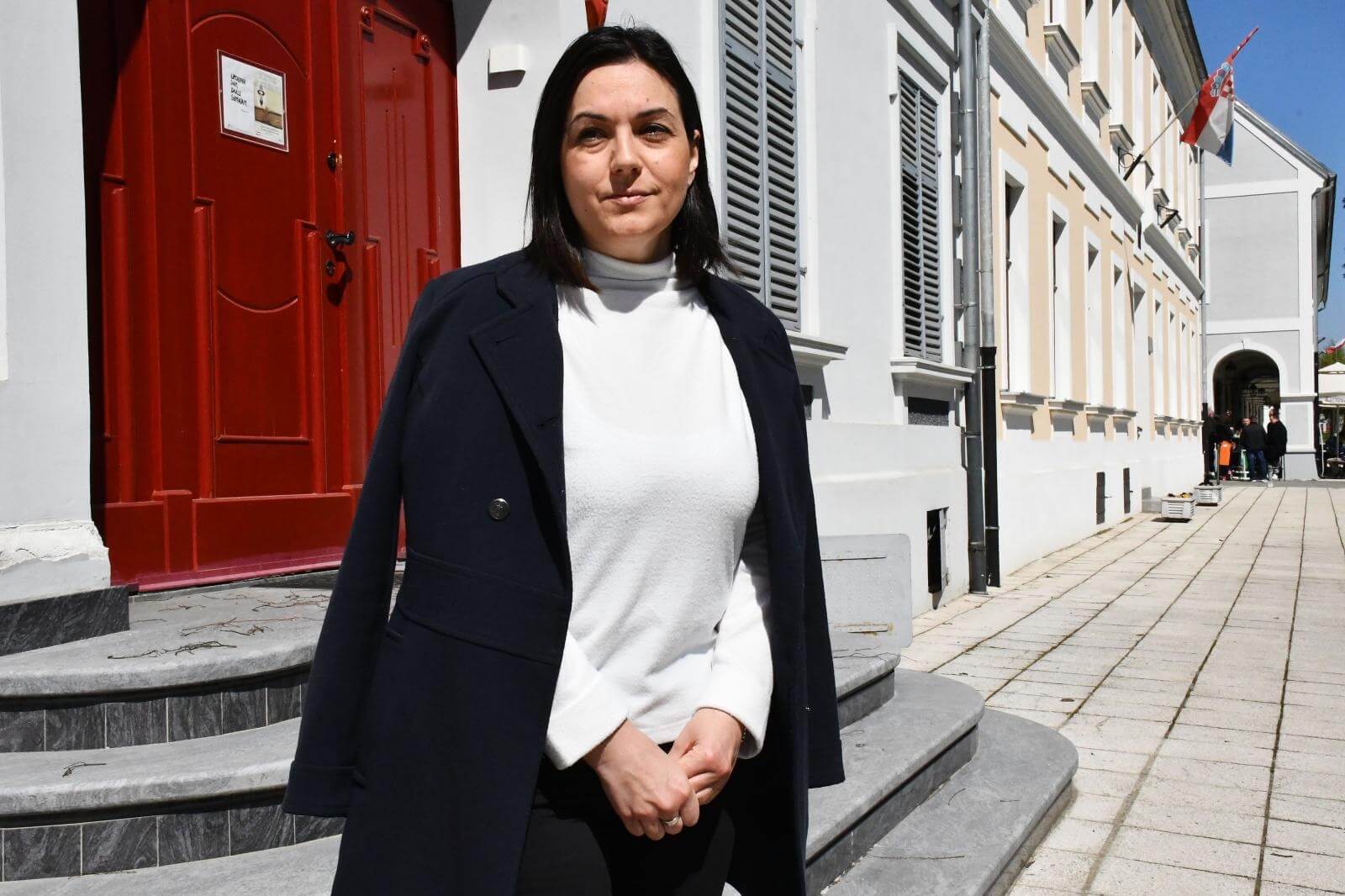
© Ivica Galovic / PIXSELL
Following the tragic death of a 2-year-old girl who was heavily beaten by her mother and neglected by her parents resulted in Marija Jugović taking the position as the new headmaster of Social Welfare Centre Nova Gradiška on Monday. Jugović replaced the former headmaster Branko Medunić, following the controversial decision of returning the girl from her foster family back to her biological parents, who previously neglected and abused her, which ended fatally.
As Večernji List reported, Medunić is still employed in the Centre, and Jugović said on Monday that the investigation by the ministry would show if there were any misconducts in handling the case.
„Medunić is a social worker, and he is currently doing the job according to his occupation“, said Jugović.
Pending the results, Jugović announced lay-offs in the Nova Gradiška Centre. The investigation was expected to be complete by Wednesday.
„It's determined that there were mistakes in the procedure, which was the mistake of the headmaster. We are still waiting for professional findings from Croatian Social Workers chamber and Croatian Psychology Chamber“, said Josip Aladrović, Minister of family and social policies, on Wednesday as a guest On National Croatian Radiotelevision (HRT).
He added that restrictions in the Centre were done immediately based on those findings, and other results are expected to be complete by the end of the week.
Highlights of the week: April snow in Zagreb brought shock and traffic
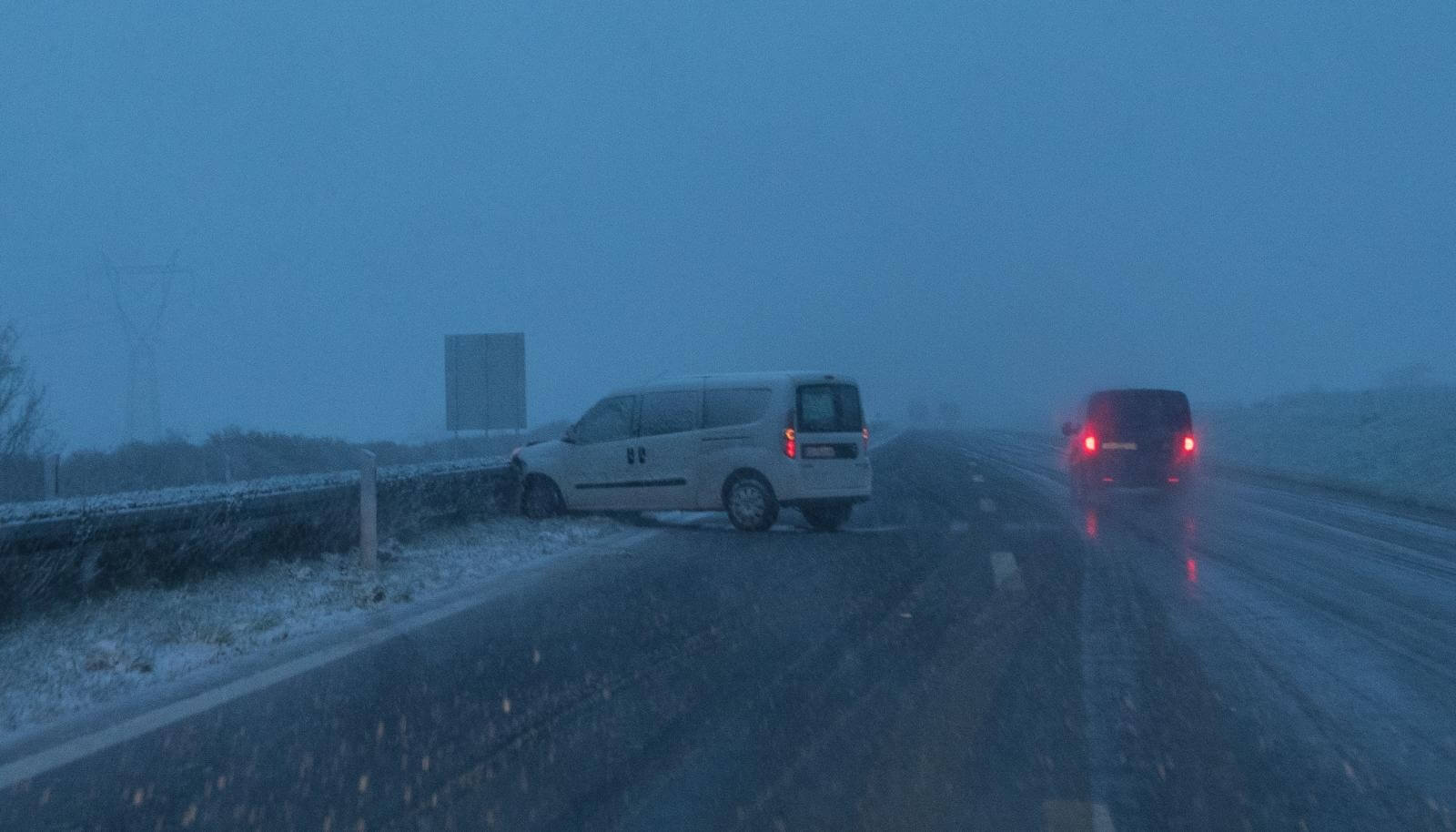
© Bruno Fantulin / PIXSELL
The heavy snow, which was announced but still surprised the citizens of Zagreb thanks to its intensity, caused chaos on Zagreb streets on Tuesday. Traffic was jammed and several accidents occurred. Still, the snow quickly melted away and meteorologists announced warmer weather by the end of the week.
Citizens of Zagreb were in disbelief of such heavy snowfall in early April, a day after it was a little under 20 degrees Celsius.
Highlights of the week: Ivica Puljak and Bojan Ivošević competing together in Split local elections
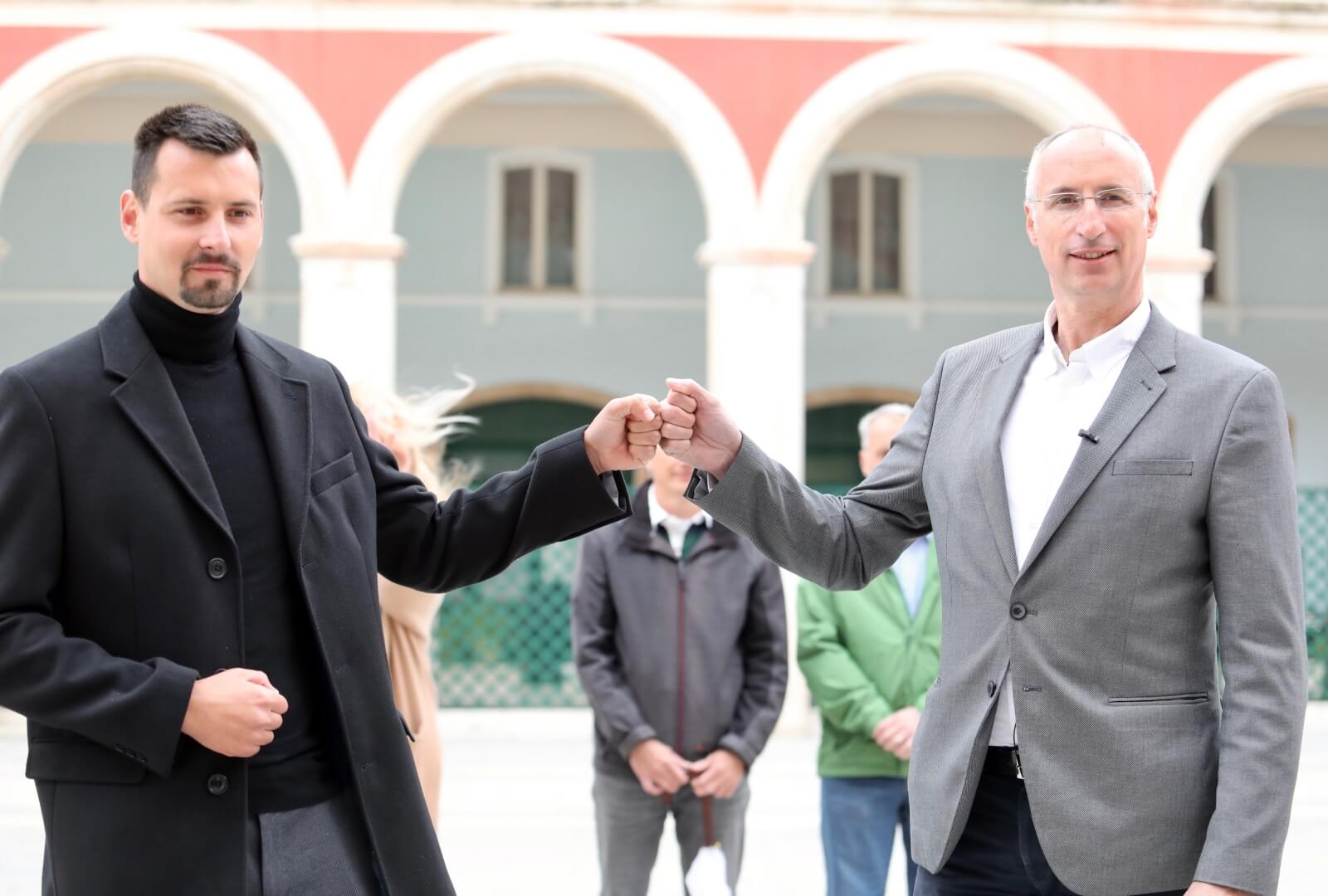
© Ivo Cagalj / PIXSELL
Mayoral candidate of Centre Party Ivica will compete in the upcoming local elections for Split Mayor with the independent candidate Bojan Ivošević who aims to be his vice-mayor. As Večernji List reported on Tuesday, the pair said this decision was easy for them as neither one had to betray their beliefs when agreeing to this collaboration.
„In this election, the civil, progressive Split we represent is waking up like never before. We united our teams, Split has a chance it didn't have in decades, and if we don't use it, we won't get another opportunity for four years, maybe even longer. We have to take this chance“, said Ivica Poljak.
Bojan Ivošević is confident they will win elections and „return freedom to the citizens of Split and end trading authority in Split“.
Highlights of the week: Construction of connecting Kaštel fort with underground tunnels ongoing in Pula
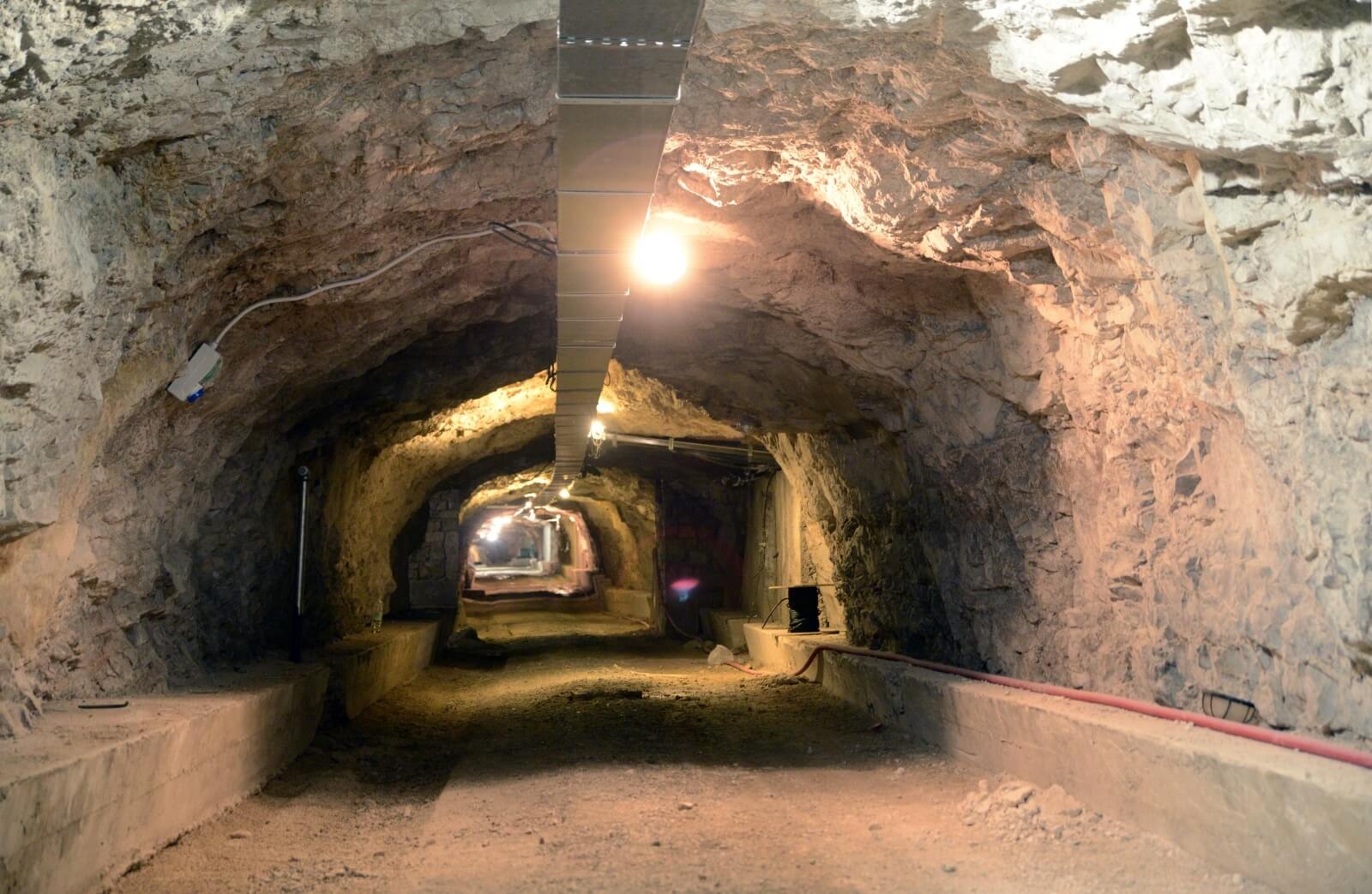
© Sasa Miljevic / PIXSELL
One of the most interesting tourist projects this year is taking place in Pula. Fort Kaštel is being connected with a network of underground tunnels that date back from the Austro-Hungarian times when Pula was the main military port. After the project was announced as early as 2019, the shaft where there will be a tourist elevator that will connect the fort with tunnels was finally been pierced last Friday.
Highlights of the week: Dinamo defeated by Villareal
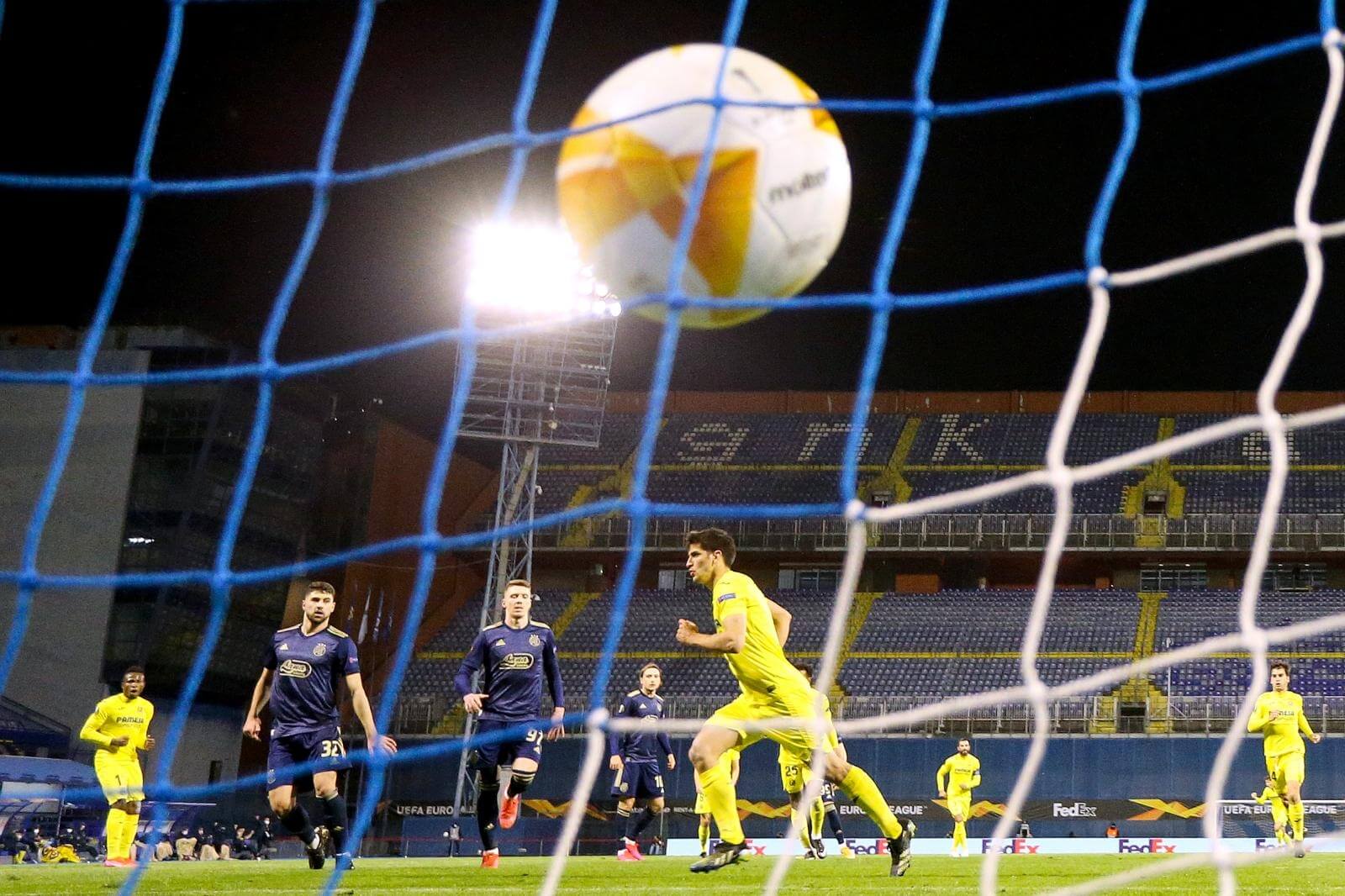
© Goran Stanzl / PIXSELL
After the brilliant victory against Tottenham, Dinamo's luck and skill took a blow in the clash with Villareal on Thursday.
Despite Dinamo handling well against the first attempt of Villareal and few risky shots aimed at Zagreb's gate, it all went well until the very end of half-time when Moreno scored for the Spanish club, taking advantage of a penalty Dinamo received for Theophile's handball.
Dinamo didn't manage to level the result or turnover the game but reduced the loss to the lowest possible outcome. Whether Dinamo is able to come on top against Villareal will be known next Thursday when they visit Villareal in Spain.
For more about politics in Croatia, follow TCN's dedicated page.
To read more about sport in Croatia, follow TCN's dedicated page.
To follow all news from Croatia, subscribe to our newsletter.
New Smart Politics for Croatia: Meet Marijana Puljak of 'Pametno'
March 15, 2019 - It started as a local community campaign for an elementary school and quickly became a national political party. Meet Marijana Puljak, leader of political party Pametno (Smart).
Although TCN is an apolitical website, covering Croatian politics is an important part of the job, and I find myself increasingly in contact with various politicians from different parties. Last summer, for example, Croatia's Prime Minister motioned me over for a chat and informed me he had no intention to sue me (not words you will hear from every politician in Croatia these days).
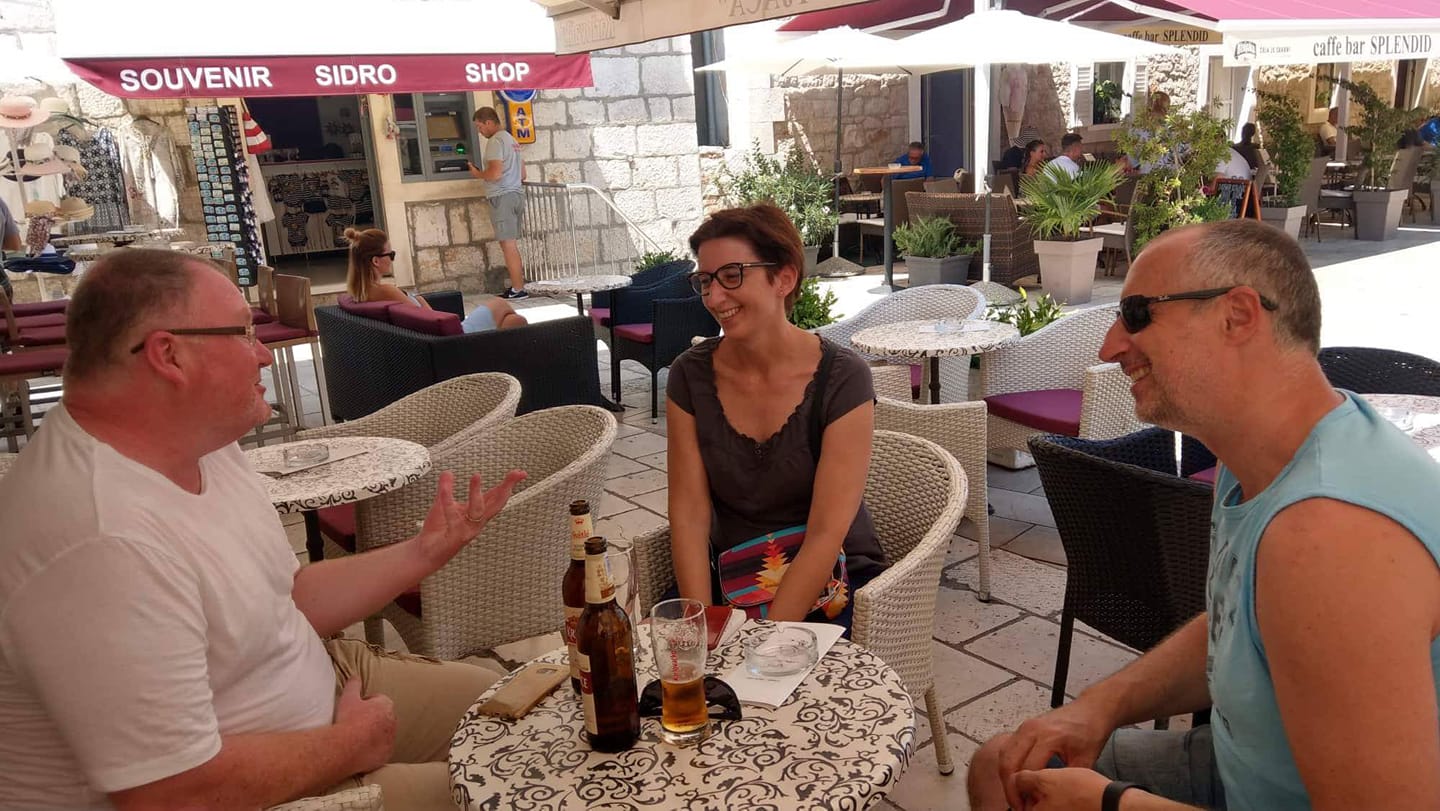
(TCN meets Pametno in Jelsa last summer - photo credit Ivo Spigel)
Plenković was not the only national political party leader I met that week in August. A mutual friend introduced me - ironically in the same cafe I had met the PM - to the husband and wife team behind a relatively new political party called Pametno (Smart). It was a very friendly first meeting with Marijana and Ivica Puljak, and I was struck with their enthusiasm and determination to bring change in Croatia. Marijana, the party leader, kindly agreed to my request for an email interview recently.
1. Firstly, can you introduce yourself and your party for our international readers who may not be so familiar with Pametno? How did you get started, where are you now, and what do you stand for?
The political party Smart (Pametno) was founded on June 13, 2015. We started a group of neighbors fighting to get an elementary school in our neighborhood, one city district in Split. During that fight we connected with other people who were socially active in their communities, or those who had not been politically engaged and were dissatisfied with the situation in our city. We formed the civic initiative "For Smart People and a Smart City" and took part in local elections in Split in 2013. The initiative promoted the Smart City concept as its city policy program. It is about the concept of sustainable cities that are widely accepted in Europe and the world, which model cities of the future as modern, open, sustainable and ecologically and socially conscious. At the 2013 elections, we achieved 10% of the votes and entered the city council with 4 city councilors. We were very successful at the local level and recognized as something new in politics. People started to recognize and join us also at national level.
In June 2015, we decided to form a national political party, with the name that was already recognizable – Smart (Pametno). We are a moderate party of common sense, a party for the promotion of work, knowledge and responsibility, a party for smart solutions facing the future.
Our vision is to build a modern, open, tolerant, civic and economically developed Croatia, based on education and work.
We stand for the constitutional values of market and entrepreneurial freedom, as well as for stable public finances and fiscal responsibility. At the same time, we have a social approach to education and health. We are committed to the civil liberties and the achieved civilization values of the developed world.
Since the founding of the party, we have participated twice in parliamentary elections, In the 2016 elections we were 300 votes short of getting a seat in parliament. In local elections in 2017, we achieved 20% and 7 seats in Split city council. For the County council we achieved 7% and 4 seats.
2. There are so many parties out there in Croatia. What makes Pametno different? Where do you see the party in 5 years from now?
Pametno today brings together a large number of individuals with rich knowledge, professional experience and quality ideas, all aiming to create a smart, modern and open Croatia. Members of our party are mostly people who were not in politics before but cannot stand by anymore, and they want to change things. We are showing by example that we are people with personal integrity that you can trust. For many years we have been fighting against the corruption and clientelism of the ruling parties that brought Croatia to the bottom of all the charts in Europe.
You can see that all our activities in the city and county council are always exclusively in the interests of all citizens. We want to completely reverse Croatia in the direction of an organized and modern society from which citizens will not run away as they do today.
In five years, we see ourselves in a government that leads Croatia towards a modern and developed society of personal and economic freedoms.
3. Will you be taking part in the European Parliament elections? What kind of results do you expect?
These are the most important EU elections since the founding of the European Union because of the rising populism and nationalism, both in Croatia and also in the rest of Europe. We will be taking part in these elections because we want to show to our voters that we are a pro-European party, we want to bring Croatia up to the standards of modern European countries, and we also want Croatia to be a factor of stability in this area. We expect to get one seat in Parliament.
4. Why did you break up the negotiations to join Amsterdam Coalition? Are you ready to reconsider your decision in the future?
We do not regret leaving negotiations to form the coalition. During negotiations, the Uljanik case showed up and we saw that these are also old type politicians who do not object to corruption or conflict of interest. That's not why we joined politics. We want to show to the people that politics is work for the general good, not for personal interest.
5. Do you see yourself cooperating with Dalija Orešković and her new party?
Start is a new political party that now talks exactly about topics that we are fighting with for a long time. According to their appearances in the media, we see that we are thinking the same about the key problems of Croatia and the solutions to these problems. Even more, the research we have done has shown the synergy of our two options, voters recognize that we are dealing with the same topics and want to see us together as a coalition. Together we are much stronger than separate and there is a chance to endanger the domination of HDZ in EU elections. I hope we will work together at some point.
6. Will you have your own candidate for president later this year? If not, who would you support?
We are fully committed to EU elections right now and will decide about that after elections in May.
7. Let's take a look at some of your positions on current hot topics in Croatia? How would you solve the Uljanik shipyard crisis, for example?
The shipbuilding industry itself has always been grateful for pumping numbers such as export and employment, but pumping and state subsidies, sanctions, and the purchase of social peace. Of course, it goes from our pockets, so nobody seems to be hurt. And in the former state, that had the most benefit of the great rise of shipbuilding in the seventies, it was not possible and profitable without state subsidies.
There is no easy exit for Uljanik now, it is likely to follow a bankruptcy with or without restructuring. The main question, that nobody asks today, is the question of responsibility. Who is responsible for company going so wrong for such a long time?
The spectacular irresponsibility of the management, which for years has accumulated a lot of losses and has driven the ship directly to the wall, without thinking of how catastrophic this is. The irresponsible government that, in the old Croatian way, closed their eyes to the problems and guaranteed for jobs that you could see from far away that could not be successful.
The industry is not developing by putting dut the fires here and there, it requires a long-term vision and development. Uljanik is, unfortunately, one of the companies that will pay the price because of omission.
8. Do you support the introduction of the euro? What do you think about how Croatia used the advantages of EU membership?
Every day we listen about poor statistics of how Croatia didn't benefit enough from EU funds. It is really disgraceful how little money did we collect. Advantages that our people recognize and use are freedom of travel, freedom to choose education or employment in the whole EU, no more customs, no more roaming. Introducing the euro is the next step and that introduction must be prepared well.
9. The population of Croatia is now less than 4 million inhabitants, as the emigration continues. What would you do to reverse this?
Croatia needs new hope. People are leaving because they are sick of listening over and over again only about the past and not about the future. They are leaving because they are sick of the corruption and clientelism at all levels, a State that is not well organized, judges that are not sentencing crimes properly. They do not see opportunities for themselves to achieve their ambitions in Croatia. A small number of them is actually leaving because of low paychecks or no opportunities to get a job. This poor atmosphere has to change, and only new people and new policies can change that, bring a new spirit and hope to Croatia. That’s what we are fighting for, to replace the people that brought Croatia to this state.
10. What do you think about the position of the Catholic Church in society? Should the Vatican treaties be revised? Should religious studies be part of the public education system?
We are strongly promoting a secular state, clear separation of church and government. All modern societies are based on such separation. Currently, the Catholic Church is strongly influencing all levels of government and public administration in Croatia. Even public TV is under strong influence. Religion must be studied within the church and not in public schools. Vatican treaties should also be revised.
11. What do you think about the government’s actions regarding Agrokor? Was the government right to intervene in order to save the jobs, or do you think that such situations should be solved by markets?
I’m afraid that public still does not know all causes and consequences of the Agrokor case. Politics has built a monster for years, it has favored interest groups at all levels.
Agrokor is a symbol of the collapse of the country that was devastated by corruption, the beginning of the avalanche that will soon catch up. For more than 20 years, the last five governments, Croatian politics has unimaginably benefited from the Agrokor phenomenon. Lex Agrokor is again a key example of corruption in Croatia because this law was written by a special group of people, that is falsely referred to as a working and expert group, and that on the basis of that law explicitly and exclusively they earn the most.
12. How do you comment on the government’s failure to purchase military jets from Israel? Should Croatia buy fighter jets at all or should the money be invested somewhere else?
Another case of scandal and another minister who had to resign. The fiasco of buying airplanes is proof of the government’s business ignorance and that they are not able to govern the state in terms of protecting and maintaining national security. With their rebelliousness they brought into question all future affairs, no one will take us seriously anymore. Also, do we know the financial damage after this broken deal?
From the very beginning, the government was not transparent on this issue, hiding the details that were to be made available to the public.
Although we might have some obligations to NATO, it was unclear why Croatia was buying airplanes at all, why we did not invest in education or healthcare, they were working behind closed doors.
Today they lie to our faces and question the basic values of trust and security of our fellow citizens. These are the values with which no one can play. Their hypocrisy and irrationality are endless, once it has to stop because of the future of our children and the whole country.
13. What assessment would you give to Prime Minister Plenković and his policies? Did you expect more from him?
The assessment is: Dissatisfied. This Government leads Croatia to the Middle Ages. We are at the bottom of all the charts in Europe, hundreds of thousands of Croats have fled the country and the emigration continues, young people do not see the future in Croatia, corruption and clientelism are eating us, scandals run in the government one by one minister, comprehensive education reform is abandoned, knowledge is not valued, no judicial reform, no local self-government reform, no reform of health system, public administration is constantly growing, number of retirees is equal to the number of employees, entrepreneurs are still under great pressure, they cannot create new values and open new jobs…
People have lost faith in all institutions of this country. That is the legacy of this government, and Prime Minister Plenković showed the level of his arrogance and ardor when he did not want to accept the resignation of Minister Žalac. He does not know what political responsibility means. Also, he has admitted that laws do not apply equally to everyone.
14. Which is the Croatian politician, past or present in the modern Croatia, that you admire the most, and why?
Actually, I admire all the people who want to change the current state of society. I admire people who are willing to abandon their comfort and be socially active to work for the benefit of the community and not personal interest. This is tough and hard work and each such person should be praised and encouraged.
To learn more about Marijana Puljak and the Pametno party, visit the official website.
For more news about Croatian politics, follow the dedicated TCN section.


